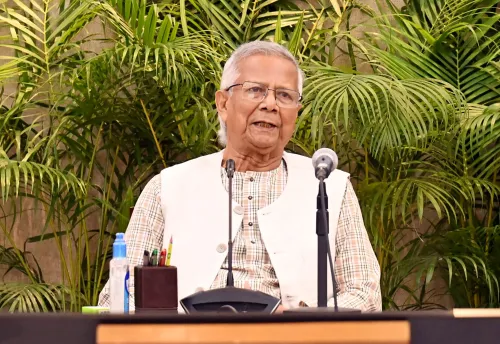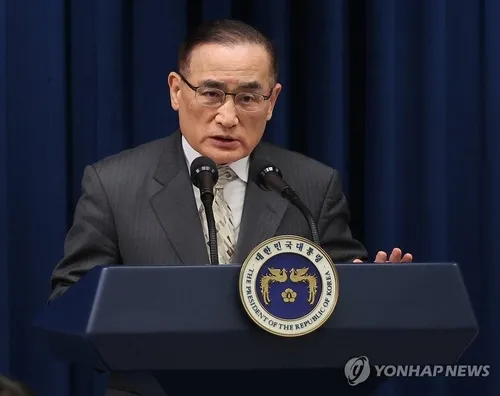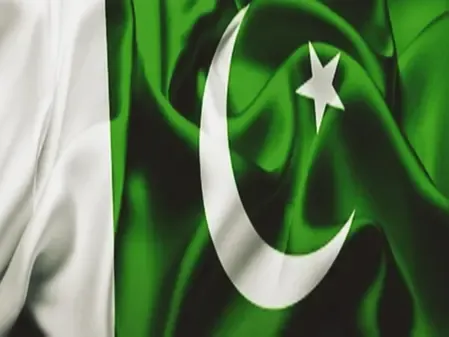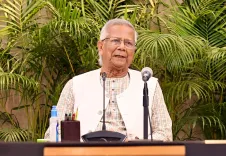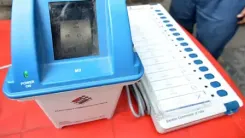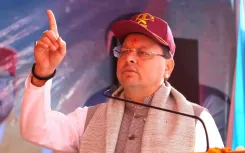US and Europe Experience Growing Divide Over Ukraine Situation
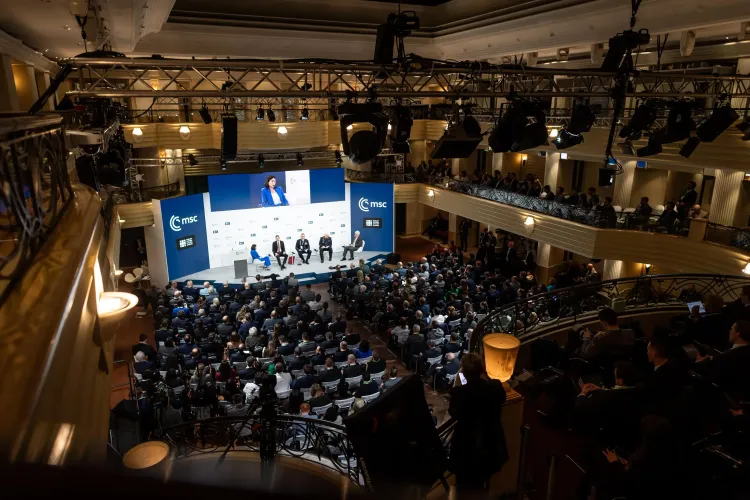
Synopsis
Key Takeaways
- US and European leaders show disagreements on Ukraine negotiations.
- Trump's call with Putin raises concerns about European security.
- Zelensky warns of diminishing American support for Europe.
- EU leaders emphasize the need for unity and action.
- Emergency meeting planned in Paris to address security issues.
Munich, Feb 17 (NationPress) As the situation in Ukraine develops, the United States and its European partners are showing deepening disagreements over how to handle the Ukraine crisis, a divide that became especially evident at the recently concluded 61st Munich Security Conference (MSC).
Keith Kellogg, the US envoy for Ukraine under President Donald Trump, made it clear during a conference event in Munich on Saturday that Europe would not be included in the negotiation discussions. "I believe this is not going to happen," he stated, although he confirmed that Ukraine would participate.
President Trump had a telephone conversation with Russian President Vladimir Putin on Wednesday, where they discussed the possibility of initiating direct talks aimed at resolving the ongoing conflict between Russia and Ukraine that has persisted for three years.
Afterward, Trump hinted at a potential meeting with Putin in Saudi Arabia.
This unexpected communication took European leaders by surprise, raising alarms that the US might strike a deal with Russia that could jeopardize European security without their input.
In reaction, leading foreign affairs officials from prominent European nations, including Germany, France, and Poland, released a joint statement emphasizing that both Ukraine and Europe must be integral to "any negotiation" concerning the Ukraine matter.
Ukrainian President Volodymyr Zelensky, also present at the MSC, warned on Saturday that the era of assured American support for Europe has concluded, suggesting that comments made by US Vice President J.D. Vance the previous day indicate a shift in US-European relations.
Vance criticized Europe’s stance on democracy and immigration in Munich, asserting that the most significant threat to the continent originates from within.
Zelensky additionally called for Europe to unify in forming a collaborative military force and a coordinated foreign policy approach.
Worried about being excluded from discussions on Ukraine, EU leaders have advocated for solidarity and decisive action across Europe. "This is a crucial moment, and now is the time for Europe to assert itself," stated German Foreign Minister Annalena Baerbock during a panel discussion.
French President Emmanuel Macron has organized an emergency meeting in Paris on Monday to deliberate on Ukraine and European security. This meeting is set to include leaders from Germany, Britain, Italy, Poland, Spain, the Netherlands, and Denmark, along with the NATO Secretary-General and the Presidents of the European Council and the European Commission, as reported by Xinhua news agency.
Polish Foreign Minister Radoslaw Sikorski remarked on Saturday at the conference that he anticipates the meeting will tackle the challenges posed by Trump.
On Sunday, British Prime Minister Keir Starmer expressed his readiness to deploy British troops to Ukraine to help secure its safety.
In a piece for the Daily Telegraph, Starmer stated that Britain is "prepared to take a leading role" in defending Ukraine, including a commitment of three billion pounds (approximately 3.8 billion US dollars) annually until 2030.


